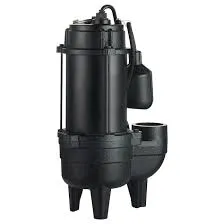Maltese
- Afrikaans
- Albanian
- Amharic
- Arabic
- Armenian
- Azerbaijani
- Basque
- Belarusian
- Bengali
- Bosnian
- Bulgarian
- Catalan
- Cebuano
- Corsican
- Croatian
- Czech
- Danish
- Dutch
- English
- Esperanto
- Estonian
- Finnish
- French
- Frisian
- Galician
- Georgian
- German
- Greek
- Gujarati
- Haitian Creole
- hausa
- hawaiian
- Hebrew
- Hindi
- Miao
- Hungarian
- Icelandic
- igbo
- Indonesian
- irish
- Italian
- Japanese
- Javanese
- Kannada
- kazakh
- Khmer
- Rwandese
- Korean
- Kurdish
- Kyrgyz
- Lao
- Latin
- Latvian
- Lithuanian
- Luxembourgish
- Macedonian
- Malgashi
- Malay
- Malayalam
- Maltese
- Maori
- Marathi
- Mongolian
- Myanmar
- Nepali
- Norwegian
- Norwegian
- Occitan
- Pashto
- Persian
- Polish
- Portuguese
- Punjabi
- Romanian
- Russian
- Samoan
- Scottish Gaelic
- Serbian
- Sesotho
- Shona
- Sindhi
- Sinhala
- Slovak
- Slovenian
- Somali
- Spanish
- Sundanese
- Swahili
- Swedish
- Tagalog
- Tajik
- Tamil
- Tatar
- Telugu
- Thai
- Turkish
- Turkmen
- Ukrainian
- Urdu
- Uighur
- Uzbek
- Vietnamese
- Welsh
- Bantu
- Yiddish
- Yoruba
- Zulu
Telephone: +86 13120555503
Email: frank@cypump.com
Nov . 24, 2024 01:21 Back to list
pumps slurry
The Importance of Pumps in Slurry Transport
In industrial applications, the transport of slurry—a mixture of solids and liquids—presents unique challenges that require specialized equipment. One of the most critical components in this process is the slurry pump. These pumps are specifically designed to handle the abrasive and corrosive nature of slurries, making them indispensable in various industries, such as mining, wastewater treatment, and construction.
The Importance of Pumps in Slurry Transport
Slurry pumps differ from standard pumps primarily in their design and functionality. They typically feature robust constructions, often made from durable materials like hardened metal or rubber, to withstand the wear and tear of abrasive particles. Additionally, slurry pumps usually operate at lower speeds than traditional pumps, which helps to minimize erosion and prolong the lifespan of the equipment. However, efficiency must not be compromised; many modern pumps are designed for optimal flow rates and energy use, reducing operational costs.
pumps slurry

There are primarily two types of slurry pumps centrifugal and positive displacement pumps. Centrifugal pumps are the most commonly used type due to their ability to handle large volumes of slurry efficiently. They utilize rotational kinetic energy to move the fluid, making them ideal for continuous operation. On the other hand, positive displacement pumps are better suited for specific applications where precise flow control is needed, such as in the chemical processing industry.
The choice of a slurry pump also depends on several factors, including the type of slurry, the required flow rate, and the distance the slurry needs to be transported. It is essential to conduct a thorough assessment before selecting a pump, as improper choice can lead to increased wear on the pump components and decreased efficiency, ultimately resulting in higher operational costs.
Furthermore, maintenance of slurry pumps is paramount. Regular inspection and proper maintenance practices can significantly enhance the longevity of these pumps. Operators should always be aware of the signs of wear and tear, as well as the potential for blockages, which can cause operational delays and safety hazards.
In conclusion, slurry pumps play an essential role in the effective transport of various materials across multiple industries. Their specialized design features, combined with a thorough understanding of operational demands, ensure that businesses can efficiently manage their slurry transport needs, ultimately leading to improved productivity and reduced costs. As industries continue to evolve, the importance of reliable slurry pumps will only grow, highlighting the need for ongoing innovation and research in this critical area of industrial engineering.
-
Custom Drilling Mud and Slurry Pump Supplier - High Efficiency, Tailored Solutions
NewsJun.10,2025
-
Supply Vertical Submersible Sewage Pump High-Efficiency WQ/QW Pumps Supplier
NewsJun.10,2025
-
Premium Sewage Ejection System & Pumps Efficient Waste Removal
NewsJun.09,2025
-
Premium Wholesale Slurry Pump Impellers Durable & Efficient Slurry Handling
NewsJun.09,2025
-
Top Sewage Pump Companies Durable Industrial Solutions for Efficiency
NewsJun.09,2025
-
Heavy Duty Slurry Pumps - OEM High Performance & Bulk Wholesale
NewsJun.09,2025










